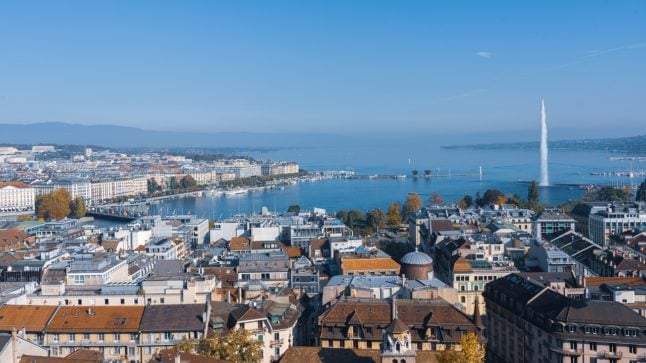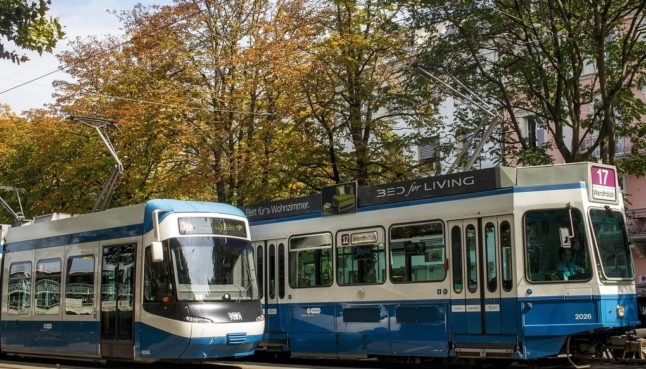Swiss cities are consistently ranked among the most expensive in the world.
But how much does it really cost to live there if we take into account median wages versus prices for various products and services, as well as fixed costs such as rent and utilities?
We looked at selected available data for Zurich, Geneva, Basel, and Lausanne — the four cities where most international residents live.
It is important to keep in mind, however, that these are current approximate averages, and can change on short notice, taking into account changing inflation rate and other factors.
Zurich
Average monthly net salary: 6,240 francs
Rent for a four-room apartment in the city centre: 3,832.92 francs; 2,737.92 francs farther from the centre
Electricity, heating, water, trash collection for a 85m2 apartment: 252.19 francs a month
Public transportation: one-way, ticket, local: 4.40 francs; Monthly Pass (regular price): 97.50 francs
Monthly childcare (full day, private): 2,772.48 francs
Fitness club, monthly fee for one adult: 84.98 francs
Three-course meal for two people at mid-range restaurant: 120 francs
Summary:
- Estimated monthly costs for a family of four are 5,754.5 francs without rent
- Estimated monthly costs for a single person are 1,571 francs without rent
You can see more Zurich prices here.
READ MORE: Which Zurich municipalities have the lowest and highest tax rates?
Geneva
Average monthly net salary: 5,446.28 francs
Rent for a four-room apartment in the city centre: 4,219.05 francs; 3,016.67 francs farther from the centre.
Electricity, heating, water, trash collection for a 85m2 apartment: 192.70 francs a month
Public transportation: one-way, ticket, local: 3 francs; Monthly Pass (regular price): 70 francs
Monthly childcare (full day, private): 2,054.62 francs
Fitness club, monthly fee for one adult: 84.98 francs
Three-course meal for two people at mid-range restaurant: 115 francs.
Summary:
- Estimated monthly costs for a family of four are 4,981.5 francs without rent.
- Estimated monthly costs for a single person are 1,357.90 francs without rent
You can see more Geneva prices here.

The city of Geneva. Photo: Pixabay
Basel
Average monthly net salary: 5,984.90 francs
Rent for a four-room apartment in the city centre: 2,718.18 francs; 2,055.56 francs farther from the centre
Electricity, heating, water, trash collection for a 85m2 apartment: 268.66 francs a month
Public transportation: one-way, ticket, local: 3.60 francs; Monthly Pass (regular price): 80 francs
Monthly childcare (full day, private): 2,487.50 francs
Fitness club, monthly fee for one adult: 72.21 francs
Three-course meal for two people at mid-range restaurant: 112.50 francs.
Summary:
- Estimated monthly costs for a family of four are 5,995 francs without rent
- Estimated monthly costs for a single person are 1,636 francs without rent
You can see more Basel prices here.
READ MORE: What we know about Basel’s international residents
Lausanne
Average monthly net salary: 5,063.62 francs
Rent for a four-room apartment in the city centre: 3,127.27 francs; 2,570 francs farther from the centre
Electricity, heating, water, trash collection for a 85m2 apartment: 285.28 francs a month
Public transportation: one-way, ticket, local: 3.70 francs; Monthly Pass (regular price): 74 francs
Monthly childcare (full day, private): 2,511.11 francs
Fitness club, monthly fee for one adult: 78.69 francs
Three-course meal for two people at mid-range restaurant: 105 francs.
Summary:
- Estimated monthly costs for a family of four are 5,504.3 francs without rent
- Estimated monthly costs for a single person are1,522 francs without rent
You can see more Lausanne prices here.
READ MORE: Why the Swiss city of Lausanne is so popular among foreigners
And the conclusion is:
- Local Purchasing Power in Zurich is 6.8 percent higher than in Geneva
- Local Purchasing Power in Zurich is 2.8 percent lower than in Basel
- Local Purchasing Power in Zurich is 13.8 percent higher than in Lausanne



 Please whitelist us to continue reading.
Please whitelist us to continue reading.
Member comments